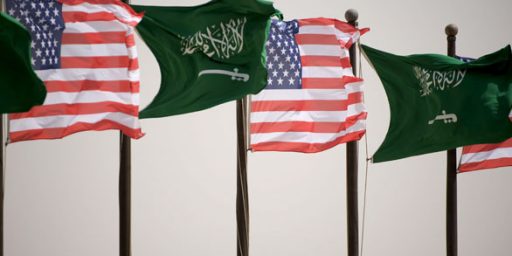Muslim Scholar Denied Entry to U.S.
Zaki Badawi, head of the Muslim College in London, is the latest high profile Muslim denied entry to the United States.
Muslim scholar denied entry to US (Guardian)
An internationally renowned British Muslim scholar was this week refused entry to the US with no explanation, it has emerged. Zaki Badawi, head of the Muslim College in London, flew to New York on Wednesday to give a high profile lecture at the city’s Chautauqua Institution. He was denied entry at JFK airport, detained for six hours and then forced to return home. It makes him the latest in a line of high profile European Muslims to be refused entry to the US.
Dr Badawi told the Associated Press that he was given no explanation of why he was not being allowed into the country. “The people I was speaking to were very junior people and they are just executing things they were told. They were very, very embarrassed and I felt sorry for them. America is a lovely country. There is no reason why it should behave like that,” he said.
The US Customs and Border Protection office said Dr Badawi had been refused entry to the country based on information indicating that he was “inadmissible”. A spokeswoman for the customs office in Washington, Leah Yoon, said when he was initially processed, his answers to basic questions were not “in alignment” with his background check or documentation. “He was questioned further and after a thorough interview he was deemed inadmissible,” she said. “He was given several options, but chose to withdraw his application.” The options presented to Dr Badawi could not be disclosed, she said.
Dr Badawi has visited the US several times, most recently in 2003. He was given an honorary knighthood, and in 2003 was a guest of the Queen at a state banquet for the US president, George Bush. Earlier this week, Dr Badawi joined other British religious leaders, including Archbishop of Canterbury, Dr Rowan Williams, and Chief Rabbi Sir Jonathan Sacks, in publicly condemning the London bomb blasts, which killed at least 54 people.
The FBI could not confirm reports that Dr Badawi had been turned away because he was on a US terror watch list. A Homeland Security spokesman said that during initial processing border officers had discovered information that “required further questioning” before deeming him inadmissible.
Yusuf Islam, the former singer Cat Stevens, was refused entry to the US in September without explanation. His flight from London was forced to make an emergency landing in Maine when US authorities discovered he was on board.
Tariq Ramadan, one of the most respected philosophers of conflict and religion, was refused entry to the US last year, although he has now been told he can reapply for a visa.
A spokesman for the Muslim Council of Britain, Inayat Bunglawala, said: “This is extremely worrying following on from the refusal of the US to admit Yusuf Islam and Tariq Ramadan. It seems the US has very little knowledge about British Muslims. These are all mainstream people who have no record of involvement in unlawful activities. They are stigmatising ordinary Muslims.”
While I am all in favor of profiling as a counterterrorism tool, this practice is rather puzzling. For one thing, one would think people would be entitled to at least the courtesy of an explanation if they are denied entry to the country after having been initially granted a visa and then devoted the time and money to fly here. Moreover, if these people actually are dangerous terrorists, it strikes me that we would want them somewhere where their activities could be monitored, such as a U.S. detention facility.






Quote:
“It seems the US has very little knowledge about British Muslims. (Like the four bombers last week??) These are all mainstream people who have no record of involvement in unlawful activities. They are stigmatising ordinary Muslims.” (The bombers were killing ordinairy Muslims. “Stigmatising” pales in comparison).
Actually, sending a message that the screen actually is screening people is a good thing, and if you get the attention of the high profile ones, maybe they will wake up and start to clean house. Maybe. We hope.
At what point do other countries retaliate by picking every 1000th visitor & telling them, sorry, you’re on our “list,” you’ll have to return home?
It stops being funny when it starts being you.
Foreigners don’t have a “right” to come here. You can be denied entry for pretty much any reason. There’s obviously more to the story than is being told.
Hell – meeting with the President doesn’t automatically make you innocent. Sami Al Arian met with the President numerous times.
I feel like we just can’t do anything right… we get criticized for being asleep at the wheel during 9/11, then we get criticized when we apply more scrutiny to who’s coming here.
If we had let that guy in, and God forbid, he blew himself up on a New York subway, the public would be screaming about why we let him in.
If it turns out the guy is completely innocent, and that his contradictory statements to customs officials turn out to be nothing, then we should offer our sincerest apologies, and invite him back.
But the attitude seems to be “Protect me from every single possible conceivable threat, but by God, don’t you dare even THINK about EVER remotely inconveniencing ANYONE, even foreigners, even the enemy. But don’t you ever let anything happen to me or my family!”
I’m really getting sick of it.
So does terrorism, Anderson. I find your lack of perspective … disturbing.
“having been initially granted a visa”
How do you know?
Perhaps he expected admission by completing a visa waiver form – & was then denied entry because he was entering to work.